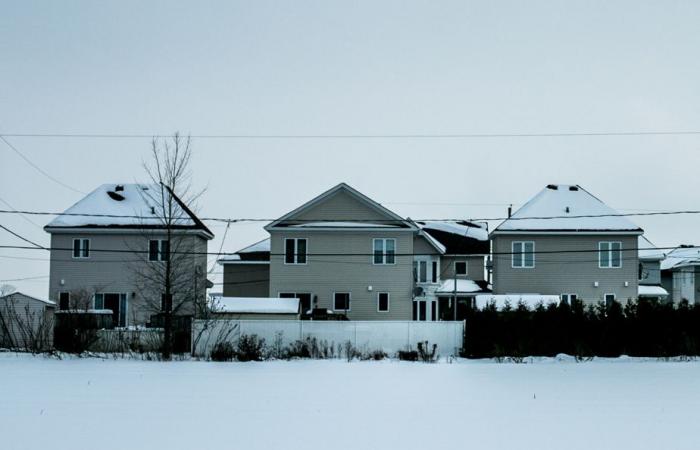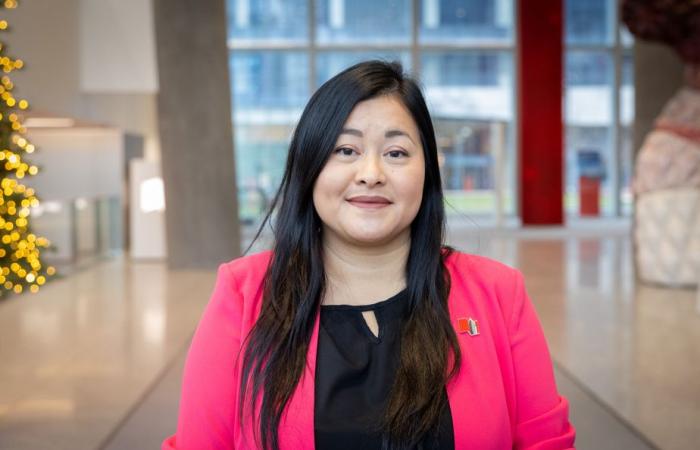A couple who separates while they have not yet finished paying off their house is a relatively common scenario. This does not mean that the procedure to follow is simple: it can raise a whole host of questions, as the following situation illustrates.
Published at 6:00 a.m.
The situation
Florence* and Marc-André* separated last fall, barely two years after buying a house on the South Shore of Montreal.
The former common-law partners are on good terms and that’s good, especially since they have two children, aged 2 and 5.
Their house is at the origin of the financial questions which pushed Florence to write to us. “Ideally, my ex-partner would like to keep the house, but the bank refused to remortgage to allow him to buy out my part,” she explains.
In 2022, the couple took out a five-year mortgage with a variable rate. Two months later, rates began to rise massively. Today, they are only just beginning to pay the capital.
Marc-André can afford to make the monthly mortgage payments of $1,995 on his own, but he does not have enough cash to return Florence’s portion of the down payment. The couple estimates that the initial amount of $10,000 that Florence put down is now worth $35,000 with the increase in value of the house.
Florence is not against the idea of temporarily leaving this amount in the house, which she sees as an investment, and a way to help her ex and his children continue to live in the house, which has two floors, a large plot of land and several closed rooms.
But she wants to make sure she doesn’t get herself into trouble. Since October, Florence has no longer paid the mortgage and has been living in a new four and a half house big enough for her and the children, for which she pays $1,850 per month. The separation was made official with the government, and family allowances were separated.
“It was important for me to choose a place where I would be comfortable. It pays well with my salary and family allowances,” says the woman who earns $74,000 gross per year.
What are his concerns?
“I wish I could take my name off the house, because I would like to buy [autre chose] possibly. I have not yet used the HBP on my RRSP, could I do so? If yes, from when? “, she raises.
There are also some in the shorter term. “I had an appliance buyback fee, and I told my ex I didn’t want to have to pay interest on it. We have to find a way to work things out. Do we take money out of RRSPs? »
“Marc-André has good intentions, but so do I. “I don’t mind him keeping the money in the house, but I want to be able to pay what I paid to relocate,” she summarizes.
The numbers
Florence, 37 ans
- Gross annual salary: $74,000 and possibility of bonus of $2000
- Rent : $1850 per month
- Amount tied up in the house: estimated value of $35,000
Analysis
Ravy Pung, financial planner at the National Bank, agreed to look into the situation in Florence.
PHOTO MARCO CAMPANOZZI, LA PRESSE
Ravy Pung is a financial planner at National Bank.
From the outset, she emphasizes that if Florence decides to leave money in the house, it is important to put the agreement in writing — perhaps even before a notary. We must also ensure that the amount that will return to Florence is clear. Is this an amount set at $35,000? Or does it continue to be influenced by the increase in value of the house? In what way?
“If the value of the house increases exponentially and the amount remains at $35,000, maybe she will find it unfair,” says Ravy Pung.
However, in general, she recommends separating couples to separate their finances as well. “The first thing I say all the time during a separation is, if possible, to sort out the house and everything joint to avoid having someone reconsider the decision,” she says.
What we often see is that at the beginning, we try to resolve it amicably, but then it drags on… and often it harms the situation, and a person will not be able to buy a new property.
Ravy Pung, financial planner at National Bank
This also creates a certain imbalance in vulnerability. If Marc-André stopped making house payments for X reason, as Florence’s name is still on the mortgage, she could be held responsible by the bank. The opposite is not true.
And the RAP?
Here, Ravy Pung has good news for Florence. Even if she still has her name on the house, she could use the money from her RRSP through the Home Ownership Plan (RAP) to buy a new one, right now.
Normally, you must not have owned your main residence during the previous four years before you can use the RAP.
“There is an exception in the event of separation. Even if she was the owner-occupier of an eligible principal residence, as she is in a situation of separation, she will be able to make a RAP to buy a new property,” explains Ravy Pung.
There are some criteria to meet, but Florence could meet them: in particular, she must have lived at least 90 days separately from her spouse at the time of the RAP. You must also have repaid the balance of a previous HBP – as Florence had not used it to purchase her first house, this criterion does not apply to her.
But above all, we must ensure that Florence’s name is no longer on the house no later than two years after the end of the year in which the RAP was made. So if Florence does a RAP in 2025, her name would absolutely have to no longer be on the house by the end of 2027 at the latest.
Marc-André could also use this mechanism to buy back Florence’s share if he meets the criteria and has money available in his RRSP.
Please note that there is no exception in the event of separation with regard to CELIAPP. Florence will therefore only become eligible when it has been four years since she has been living in a principal residence that she or her spouse owns.
Household appliances
As Florence’s partner kept the appliances that belonged to the couple, it is understandable that she would like him to contribute to the purchase of his own. However, this is a case of amicable agreement, since nothing obliges him to contribute, specifies Ravy Pung.
However, the idea of withdrawing money from an RRSP to pay for household appliances is not optimal. The amount of money will be taxed, and there will be less left to make a RAP.
“Before doing that, we will try to see if there is another option to get liquidity,” says Ravy Pung.
If you haven’t already done so, the financial planner recommends that Florence take the time to review her entire budget, and determine which of her variable expenses are and which could be reduced or eliminated. “The idea would be to take this amount and turn it into periodic savings,” which could be used to build an emergency fund and purchase the appliances and furniture she needs.
“That would avoid having to look into credit solutions – in other words, debts – just so that she doesn’t get into even more debt, because if she gets into even more debt with payments over several months or loans , it will affect his borrowing capacity for the house. It’s like a wheel that turns, you have to be careful, start now even if it’s just a small amount in savings, to avoid having to resort to credit,” she says.
Advice is a classic, but as Florence’s entire financial portrait changes and a decision can have an impact on several aspects of it, Ravy Pung encourages her to make an appointment with her financial advisor. to take stock of his situation.
* Although the case highlighted in this section is real, the first names used are fictitious.







